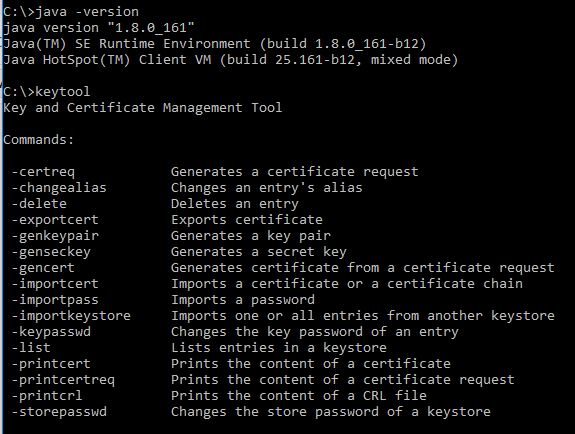keytool , JKS and orapki

This post will cover keytool, JKS and orapki 1) What is keytool The Java Keytool is a command line tool that can work with Java KeyStore files. The Keytool can generate key pairs into a KeyStore file, export certificates from, and import certificates into a KeyStore and several other functions. keytool utility is available when you install Java sdk. Here are a few commonly used keytool commands. See below keytool under java 1.8 version. Default location is where you installed JDK, e.g. C:\Program Files\Java\jdk1.8.0_45\bin> Keytool command --------------------------------------------------------------------------------- 2) What is Java Keystore (JKS) JKS is a container that stores the signature and encryption keys required by the X.509 token on the client. JKS is a proprietary keystore format defined by Sun Microsystems/now Oracle Java. Trusted certificates and public and private keys are stored in the keystore. JKS protects private keys with a password for security. To
